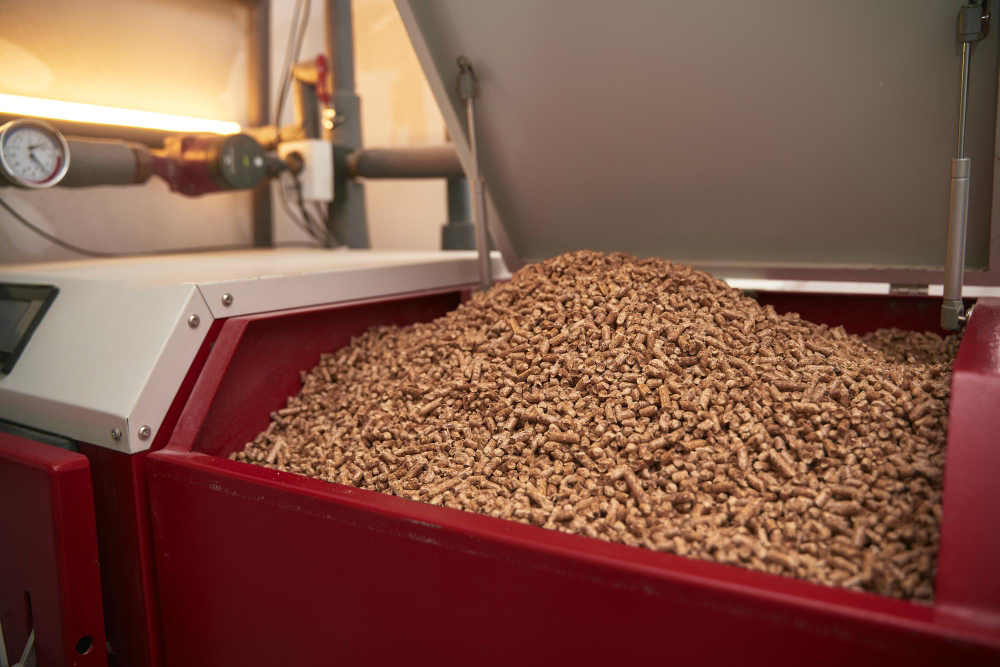What Should You Know Before Installing a Biomass Boiler

Biomass boilers are becoming increasingly popular in homes and businesses across England as people look to reduce their carbon footprint and lower their energy bills. However, before you rush out to buy and install a biomass boiler, it’s important to understand what they are, how they work, the costs involved, and the financial support available. In this article, I will give you a complete guide to biomass boilers, including their advantages, disadvantages, and environmental impact.
Introduction to Biomass Boilers
A biomass boiler is a heating system that uses organic matter, such as wood chips, pellets, or logs, to generate heat. Unlike traditional boilers that rely on gas or oil, biomass boilers are a renewable and sustainable energy source that can help reduce carbon emissions and lower energy bills. Biomass boilers work by burning the organic matter in a combustion chamber, which heats water and produces steam that is used to heat your home or business.
How Biomass Boilers Work
Biomass boilers work by burning organic matter, such as wood chips, pellets, or logs, in a combustion chamber. The heat generated by the combustion process is used to heat water, which is then circulated through pipes and radiators to provide heating for your home or business. Biomass boilers can also be used to provide hot water for showers and baths.
There are two main types of biomass boilers: log biomass boilers and wood pellet biomass boilers. Log biomass boilers burn logs and are best suited for homes and businesses with access to a ready supply of wood. Wood pellet biomass boilers, on the other hand, burn wood pellets, which are easier to store and transport than logs. Wood pellet biomass stove boilers are also available, which are smaller and designed to be used in a single room.
Types of Biomass Boilers
There are several types of biomass boilers available, including:
- Log biomass boilers
- Wood pellet biomass boilers
- Wood pellet biomass stove boilers
Log biomass boilers are best suited for homes and businesses with access to a ready supply of logs. Wood pellet biomass boilers are more convenient to use and are better suited for homes and businesses where storage space is limited. Wood pellet biomass stove boilers are smaller and designed to be used in a single room.
Understanding the Costs of Biomass Boilers
The cost of a biomass boiler can vary depending on several factors, including the type of boiler you choose, the size of your home or business, and the cost of installation. Log biomass boilers tend to be cheaper than wood pellet biomass boilers, but they require more manual labour to operate. Wood pellet biomass boilers are more expensive to buy but are more convenient to use.
Financial Support for Biomass Boilers in England
The UK government offers financial support to homeowners and businesses that install biomass boilers. The Renewable Heat Incentive (RHI) is a scheme that pays homeowners and businesses that generate renewable heat. The RHI is available to anyone who installs a biomass boiler that meets the scheme’s eligibility criteria.

Choosing the Right Size Biomass Boiler for Your Home
Choosing the right size biomass boiler for your home or business is essential to ensure that you get the most efficient and cost-effective heating solution. The size of the boiler you need will depend on several factors, including the size of your home or business, the type of biomass fuel you plan to use, and your heating requirements.
Maintenance of Biomass Boilers
Biomass boilers require regular maintenance to ensure that they operate efficiently and safely. The maintenance requirements of a biomass boiler will depend on the type of boiler you choose and the fuel you use. Log biomass boilers require more manual labour to operate and maintain, while wood pellet biomass boilers are more automated and require less maintenance.
Advantages of Biomass Boilers
Biomass boilers offer several advantages over traditional boilers, including:
- They are a renewable and sustainable energy source
- They can help reduce carbon emissions
- They can lower energy bills
- They are easy to use and maintain
Disadvantages of Biomass Boilers
Biomass boilers also have some disadvantages, including:
- They can be expensive to install
- They require regular maintenance
- They require a steady supply of biomass fuel
- They can be noisy during operation
Environmental Impact of Biomass Boilers
Biomass boilers can have a positive environmental impact by reducing carbon emissions and helping to combat climate change. However, biomass boilers also have some environmental drawbacks, such as the potential for deforestation or land-use change to produce biomass fuel.
Benefits of Biomass Heating
Biomass heating offers several benefits over traditional heating systems, including:
- It is a renewable and sustainable energy source
- It can help reduce carbon emissions and combat climate change
- It can lower energy bills
- It can provide a reliable and consistent source of heat
Conclusion
Biomass boilers are a renewable and sustainable energy source that can help reduce carbon emissions and lower energy bills. However, before you rush out to buy and install a biomass boiler, it’s important to understand what they are, how they work, the costs involved, and the financial support available. By following the advice in this article, you can make an informed decision about whether a biomass boiler is right for your home or business.
If you have some questions, I would like to invite you to contact to Proadvance to learn more how biomass boilers can help reduce your carbon footprint and lower your energy bills.


